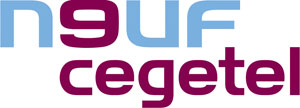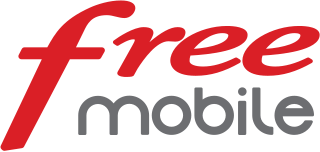
Communications in Belgium are extensive and advanced. Belgium possesses the infrastructure for both mobile and land-based telecom, as well as having significant television, radio and internet infrastructure. The country code for Belgium is BE.
Telecommunications in Burkina Faso include radio, television, fixed and mobile telephones, and the Internet.

Egypt has long been the cultural and informational centre of the Middle East and North Africa, and Cairo is the region's largest publishing and broadcasting centre.
Telecommunications in Gabon include radio, television, fixed and mobile telephones, and the Internet.
The following is an outline of communications technology in Morocco.
Telecommunications in New Zealand are fairly typical for an industrialised country.
Telecommunications in Saudi Arabia have evolved early in the Kingdom since the establishment the Directorate of Post, Telephone and Telegraph (PTT) in 1926.

The telecommunication infrastructure of Singapore spans the entire city-state. Its development level is high, with close accessibility to the infrastructure from nearly all inhabited parts of the island and for all of the population, with exceptions. Today, the country is considered an international telecommunications hub, an achievement that was driven by Singapore's view that high-quality telecommunications is one of the critical factors that support its economic growth.
Telecommunications in Eswatini includes radio, television, fixed and mobile telephones, and the Internet.
Telecommunications in Tanzania include radio, television, fixed and mobile telephones, and the Internet available in mainland Tanzania and the semiautonomous Zanzibar archipelago.
There are a number of systems of communication in Uganda, including a system of telephony, radio and television broadcasts, internet, mail, and several newspapers. The use of phones and the internet in Uganda has rapidly increased in the last few years.
Portugal has a modern and flexible telecommunications market and a wide range of varied media organisations. The regulatory body overseeing communications is called ANACOM.

Telecommunications in Armenia involves the availability and use of electronic devices and services, such as the telephone, television, radio or computer, for the purpose of communication. The various telecommunications systems found and used in Armenia includes radio, television, fixed and mobile telephones, and the internet.

SFR is a French telecommunications company.
Numericable was a major French cable operator and telecommunications services company. Numericable was originally created in 2007 from the merger between former competitors Noos and NC Numericable networks. Numericable Group SA was founded in August 2013 to act as the parent company of Numericable group companies and to offer its shares on the stock exchange. The company provides cable broadband services in France, Luxembourg and Portugal, offering digital and analog television, Internet, and phone services to homes. From 2008, Numericable also offered mobile telephone services to its customers.
Bouygues Telecom is a French mobile phone, Internet service provider and IPTV company, part of the Bouygues group. It is the third oldest mobile network operator in France, after Orange and SFR, and before Free Mobile. Its headquarters, designed by Arquitectonica, is located at the border of Paris and Issy-les-Moulineaux near the River Seine.

Neuf Cegetel was a French wireline telecommunications service provider and a mobile virtual network operator (MVNO). It offered various telecommunications services to consumers, enterprises and wholesale customers, ranking second in the country in annual revenues. It was legally established in 2005 following the completion of the merger between Neuf Telecom and Cegetel. As of June 2008, the company became a wholly owned subsidiary of SFR, and the brand disappeared commercially.

Due to economy of scale property of telecommunication industry, sharing of telecom infrastructure among telecom service providers is becoming the requirement and process of business in the telecom industry where competitors are becoming partners in order to lower their increasing investments. The degree and method of infrastructure sharing can vary in each country depending on regulatory and competitive climate.
Internet in France has been available to the general public since 1994, but widespread Internet use did not take off until the mid-2000s. As of 31 December 2014, France had 26 million Internet broadband and high-speed connections on fixed networks. In 2014, 80.7% of French households had Internet access, while 19.3% did not.

Free Mobile is a French wireless service provider, part of the Iliad group. It was the fourth mobile network operator to obtain a metropolitan French 3G license in 2009. It also obtained a 4G license in 2011.







